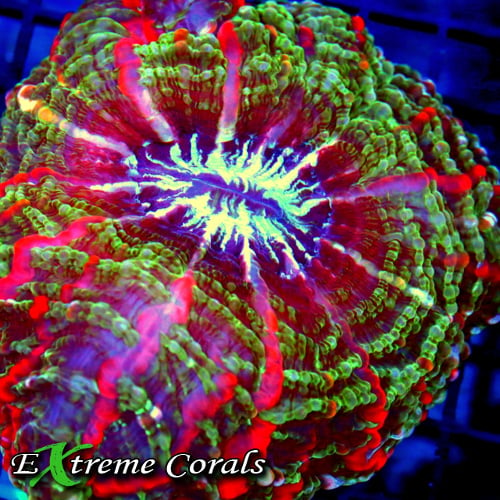Extreme Corals News and Updates
Tips for Successful Growth and Coloration of Your Meat Coral
Mastering Meat Coral Care: Expert Tips for a Vibrant and Thriving Reef Tank
Diving into the mesmerizing world of meat coral care requires a delicate balance of knowledge and dedication. With their vibrant hues and intricate structures, meat corals bring a touch of underwater magic to any reef tank. To ensure your meat corals thrive and display their full spectrum of colors, it's essential to understand the nuances of their care routine. From creating the ideal environment to perfecting feeding strategies, this guide unveils five expert tips to help you foster the growth and coloration of your meat coral.
by scott Shiles • September 16, 2024
Understanding the Basics of Meat Coral Care
Getting to know the fundamental aspects of meat coral care is crucial for fostering their growth and vibrancy in your reef tank. Meat corals, belonging to the Fungiidae family, require a stable environment with optimal conditions to thrive. Understanding their natural habitat and behavior can guide you in replicating the ideal setting within your aquarium.
One key factor in meat coral care is maintaining stable water parameters, including temperature, salinity, and pH levels. Sudden fluctuations in these parameters can stress the corals and impede their growth. Regular monitoring and adjustments, if necessary, are essential to ensure a conducive environment for your meat corals.
Additionally, providing adequate lighting and water flow is vital for the health of meat corals. Different species within the meat coral category may have varying light requirements, so it's essential to research and cater to the specific needs of your coral inhabitants. Proper water movement helps deliver nutrients and oxygen to the corals while preventing debris buildup.
By grasping the basics of meat coral care, you lay a solid foundation for their successful growth and coloration. Remember, attention to detail and consistency are key components in nurturing these captivating marine organisms.
Creating the Ideal Environment for Meat Coral
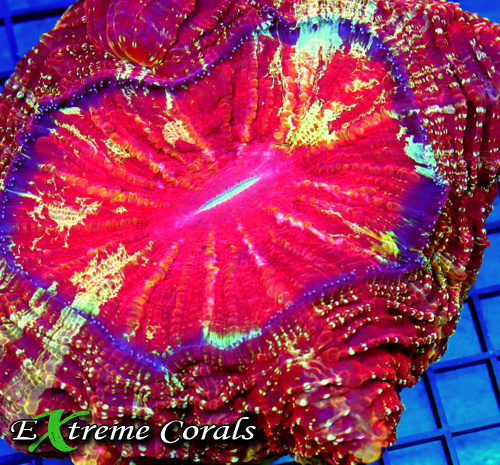
Crafting a suitable environment within your aquarium is paramount for the well-being of meat corals. Start by arranging the placement of your corals to mimic their natural habitat and promote optimal growth. Providing ample space between corals prevents overcrowding and reduces the risk of aggressive encounters.
Maintaining water quality is central to creating a conducive environment for meat corals. Regular water changes, the use of a protein skimmer, and the presence of efficient filtration systems aid in upholding pristine water conditions. Clean water supports coral health and enhances their coloration.
Incorporating live rock into your aquarium setup not only adds aesthetic appeal but also serves as a biological filter, aiding in nutrient cycling and waste breakdown. Creating microhabitats within the live rock offers refuge to various beneficial organisms that contribute to the overall balance of your coral ecosystem.
When designing the ideal environment for meat corals, consider factors such as water flow patterns, substrate type, and the positioning of equipment to ensure a harmonious and thriving aquatic haven for your coral inhabitants.
By meticulously curating the environment in which your meat corals reside, you elevate their chances of flourishing and expressing their stunning colors. Strike a balance between aesthetics and functionality to create a visually captivating and biologically sustainable reef environment.
Feeding and Nutrition Strategies for Vibrant Meat Coral
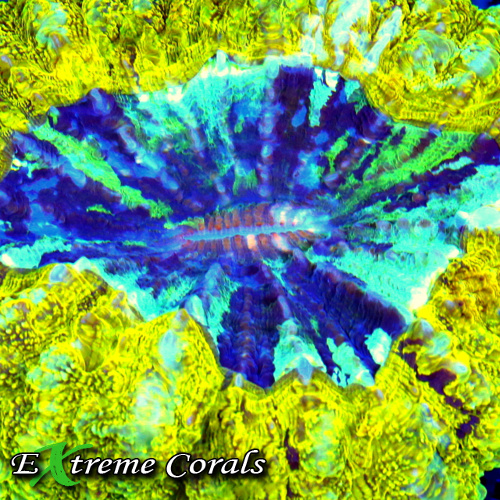
Implementing a well-rounded feeding regimen is essential for enhancing the coloration and vitality of your meat corals. While meat corals derive energy primarily from photosynthesis, supplemental feeding can bolster their nutritional intake and support optimal growth.
Offering a mix of zooplankton, phytoplankton, and specialized coral food supplements enriches the diet of meat corals, providing essential nutrients and encouraging polyp extension. Target feeding ensures that each coral receives an adequate amount of food, promoting individual health and vibrancy.
Understanding the feeding preferences of your meat corals is key to tailoring a feeding strategy that meets their specific requirements. Observing their response to different foods and adjusting your feeding schedule accordingly can lead to enhanced coloration and robust growth.
Maintaining water quality plays a significant role in the effectiveness of feeding regimes for meat corals. Clean, well-oxygenated water supports digestion and nutrient absorption, allowing corals to utilize the provided food efficiently. Consistency in feeding practices contributes to the overall well-being of your coral community.
Maintaining Water Quality for Healthy Meat Coral Growth
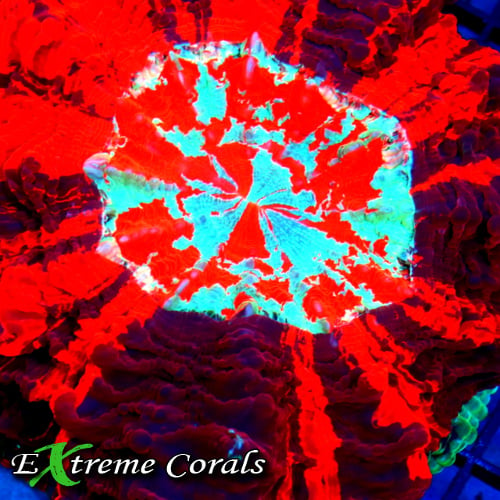
Preserving pristine water quality is a cornerstone of successful meat coral husbandry. Regular testing of water parameters, such as ammonia, nitrate, and phosphate levels, helps you stay informed about the health of your aquarium ecosystem and enables timely interventions if deviations occur.
Utilizing high-quality filtration systems, protein skimmers, and routine water changes aids in the removal of accumulating waste and pollutants that can compromise water quality. A well-maintained aquarium environment promotes the flourishing of meat corals and supports their optimal coloration.
Monitoring and maintaining proper calcium, alkalinity, and magnesium levels are essential for the calcification process in meat corals, facilitating skeletal growth and vibrant color development. Balanced mineral levels contribute to the overall resilience and metabolic functions of your coral community.
Remember, diligent water quality management is a continuous commitment that safeguards the long-term health and beauty of your meat corals. By prioritizing water quality, you create a stable and thriving aquatic ecosystem for your coral inhabitants to prosper.
In summary, water quality is not just a foundational element but a dynamic factor that influences the growth, coloration, and resilience of meat corals. Engage in regular monitoring and maintenance practices to uphold the purity and stability of your aquarium environment, fostering the well-being of your coral companions.
Enhancing Coloration and Growth Through Proper Lighting
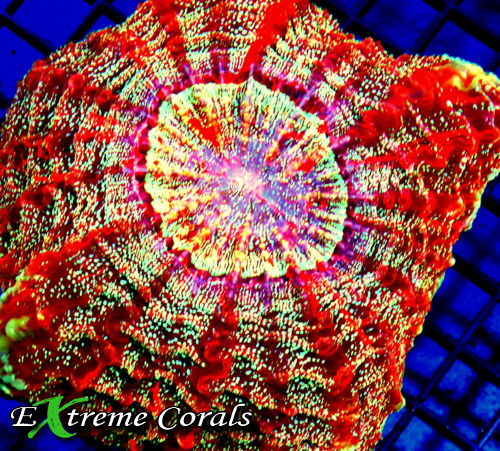
Harnessing the power of appropriate lighting is crucial for maximizing the coloration and growth potential of meat corals. Different species exhibit varied light requirements, ranging from low to high intensity, and understanding these needs is pivotal in achieving vibrant pigmentation and healthy expansion.
LED lighting systems offer customizable lighting options, allowing you to tailor the light spectrum and intensity to suit the specific demands of your meat corals. By simulating natural lighting conditions, you can promote photosynthetic activity and color development in your coral colony.
Creating a lighting schedule that mimics the diurnal cycle of coral reefs, with gradual illumination and periods of dimming, fosters a natural and sustainable growth environment for meat corals. Consistency in light exposure and spectral quality enhances the visual appeal and metabolic functions of your corals.
Embracing the Beauty of Meat Corals
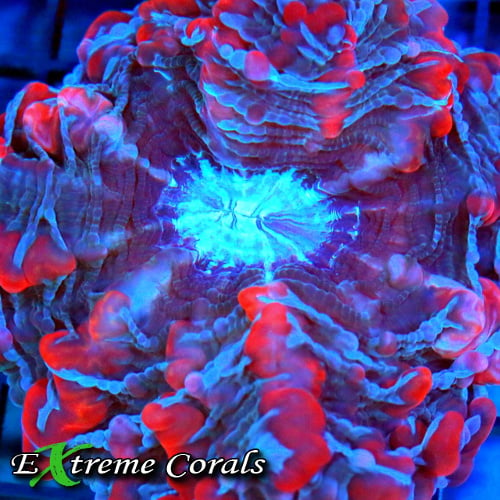
In the realm of underwater ecosystems, meat corals stand out as colorful gems, adding life and vibrancy to marine environments. By implementing the tips shared in this guide, you can cultivate a flourishing coral reef teeming with dazzling meat corals. Remember, sustained growth and vivid coloration are not just visual delights but also indicators of the health and vitality of your meat coral. Embrace the beauty and complexity of these marine creatures as you embark on your journey to nurture and enrich your underwater world. Check our stock of LPS Coral Colonies to add your own meat coral to your reef tank today.

